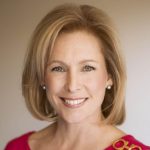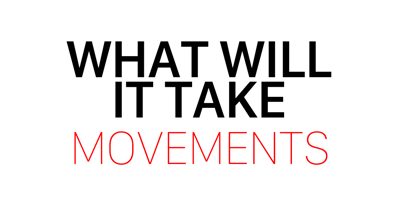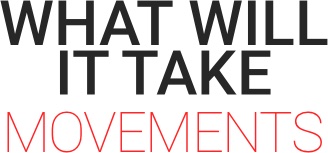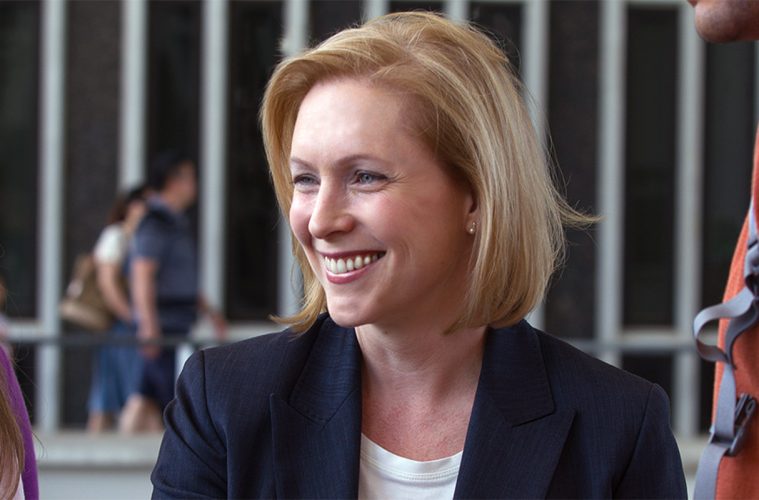Click to Read the Latest!
 ‘Make Your Voice Heard’: How Sen. Kirsten Gillibrand Is Inspiring A New Generation Of Changemakers
‘Make Your Voice Heard’: How Sen. Kirsten Gillibrand Is Inspiring A New Generation Of Changemakers
An in-depth interview with Senator Kirsten Gillibrand about her new children’s book Bold & Brave, the arc of women’s political progress, and what she wants all girls and women to know. (Women@Forbes)
The following interview is an excerpt from What Will It Take to Make a Woman President: Conversations About Women, Leadership & Power by Marianne Schnall.
Marianne Schnall: What made you decide to launch the Off the Sidelines initiative?
Kirsten Gillibrand: Well, it really occurred to me over the last few years that women are not sufficiently part of the decision-making fabric of this country—whether in Congress, state governments, corporate boardrooms, or corner suites, there are not enough women’s voices being heard. So when we’re actually trying to look at issues like the economy, solving these problems, I feel that if more women’s voices were heard, if more women were part of decision-making, our outcomes would be better. And a lot of studies support that; a lot of studies show that when women are on corporate boards, companies do better. My own experience in Congress is when women are on committees and at hearings, the nature of the discussion is different and the outcomes are better—we reach better solutions, better decisions are made. So I really want to create a nationwide call to action to get more women engaged both in solving this economic crisis and entering political life and being heard on political issues.
It’s very much like the Rosie the Riveter campaign was during World War II. Women rarely worked outside the home, so they had to have a call to action. Rosie the Riveter was born and her sleeves are rolled up, she’s got a kerchief on—the slogan was “We can do it!” I feel like we need Rosie the Riveter of our generation. That campaign alone brought two million women into the workforce within fourteen months, and by the end of the war, six million. So if we can have a similar call to action, to say, “Women, we need you to be advocates, to be heard on the issues you care about, to be voting, to be running for office, to be part of decision making.”
And on the economic side, if we are going to out-innovate, out-compete, and out-educate other countries, our competitors, we are only going to succeed if women are leading the way. And that’s largely because women are now graduating with more than 50 percent of advanced degrees, more than 50 percent of college degrees, and women-owned and minority-owned businesses are the fastest growing sector within small businesses. If we had equal pay in this country, you could raise the GDP by up to 9 percent. If [women] had the same access to capital—women start businesses with eight times less capital than men—we would see greater economic growth. With women’s participation in the economy, in economic and political decision-making, we would have a better result.
“Women, we need you to be advocates, to be heard on the issues you care about, to be voting, to be running for office, to be part of decision-making.”
MS: One of the things that often happens is that these efforts to boost women’s representation are wrongly misinterpreted as being somehow anti-male, which of course they aren’t. Keeping that in mind, what qualities do you think women can bring to leadership that are most needed in the world right now?
KG: Well, I think a woman’s perspective often will complement a male’s perspective. In fact, oftentimes we see the problem differently, we see the solution differently, and so by bringing that perspective to the table, you will have a more holistic approach. For example, women are often very good listeners, often good consensus-builders, often able to compromise and reach across party lines in Congress, able to forge deals and reach better solutions. So I think by nature we are very good at consensus-building, but we also often seek political office for different reasons. Many women come to political life because they want to solve problems or address a certain issue that they care deeply about—less often are they coming to Washington for power of self-aggrandizement.
MS: Women today are faced with many challenges of balancing work and family, something I know you can relate to and frequently talk about. Do you think we need to be talking more about those issues and challenges to inform policy and create change?
KG: We’ve had these women’s economic empowerment roundtables all across the state, and some of the feedback we got through those conferences is that there are some impediments for women entering the workforce; for example, affordable daycare, good quality early childhood education. Mothers in particular often want to enter the work force, but don’t have the childcare or the support they need to do so. So making sure employers know that when they provide childcare services, or when they make it easier for parents to work, they are increasing access to very good workers and to who’s available for the workforce. That it’s a very pro-economy issue if you can provide affordable daycare. A lot of studies show that if you do that, if you provide it on site or make it accessible, that actually a lot of parents are more productive workers as a result. So there is a lot of upside to it. I have a number of pieces of legislation to address that problem, both on the affordability side and tax credit legislation, to double the tax credit for early childhood education. But then I also have a number of incentives for businesses and employers to create opportunities for on-site daycare or easily accessible daycare.
“We need women leading the way. I really think that until women are able to achieve their potential, America will not achieve hers.”
MS: When you said we needed a call to action, it does feel like we are at an important cusp of history and that the need for change is urgent.
KG: It is urgent. I believe if we are going to grow our economy and really create a competitive environment against other nations, we need women as part of that effort. We need women leading the way. I really think that until women are able to achieve their potential, America will not achieve hers.
MS: Entering the political arena can seem very intimidating—not just the extreme effort of running for office, but also oftentimes being one of very few women in the room. What advice or perspective can you offer on that?
KG: Well, I think the most important message for women is that they can do it. That this is something they can do. That you can find a way to balance a career and family— that there is a way that you can be part of the decision-making fabric of this country and still be a good mother. For a lot of women, that’s the challenge: “Can I do both? Is it the right time in my family’s life to take on these challenges?” And my call to action is very comprehensive. Do whatever you can do; it’s a question of: Are you voting? Are you being heard? Are there issues that you care about that you could advocate for and let your representatives know how important they are to you? Would you ever consider running for office? Really making that request of women’s participation across the board.
Many organizations have done studies, and one thing they’ve found is that women really need to be asked to participate, that they respond very well when they’re asked to run for office. The studies also show that when women do run, they win—they do have the ability, they do have the tenacity, they do have the drive, they can raise the funds. So I think we need a call to action. We need to actually invite women to come to the table, both in corporate America and in political life, because we need their thoughts, views, and guidance on these very important decisions that our country is making.
MS: I saw on your site that you said, “getting off the sidelines is a state of mind.” How would you describe that state of mind?
KG: It’s basically an understanding that women’s voices matter. That through our own advocacy, through our own participation, the country will be better off. And that the decisions that we will make in government and in companies will be better decisions because of women’s participation.
“There is nothing that you cannot do if you put your mind to it and really fight hard.”
MS: So much of this is rooted in women knowing their power and valuing their true voice, something we often lose touch with early on. If you could go back and give one piece of advice to your younger woman and girl self, what would it be?
KG: To do public service. I think that when young people are asked to help others—through community activity, through cleaning up the neighbor- hood, through helping at a senior center, through being a candy striper at a local hospital—that opportunity to serve when you are young really creates a heart of service in people. And they understand how important advocacy is, and how important service is. So if I were to give my young self advice, I would encourage myself to do even more public service and community service.
MS: These days when people look at the world, it can feel very overwhelming, and it’s very easy to feel disempowered as if there’s nothing you can personally do that can make a difference. What encouragement, advice or inspiration would you offer to them?
KG: Well, one thing my grandmother always told me is that I could do anything I wanted as long as I didn’t give up and just worked hard at it every day. There is nothing that you cannot do if you put your mind to it and really fight hard.
(This interview is an excerpt from What Will It Take to Make a Woman President: Conversations About Women, Leadership & Power by Marianne Schnall. All rights reserved.)
About Kirsten Gillibrand
U.S. Senator Kirsten Gillibrand was twice elected to the U.S. Senate, in just four years, with an overwhelming 63 percent of the vote in 2010, and a New York state record-breaking 72 percent in 2012. After first being elected to the House of Representatives in 2006, she was appointed to serve in the seat vacated by Secretary of State Hillary Clinton in January 2009.
In a short time, Gillibrand has made her presence felt in Washington. She helped lead the fight to repeal “Don’t Ask, Don’t Tell,” worked tirelessly to successfully pass legislation to provide health care for the 9/11 first responders who are sick and dying from toxins at Ground Zero, and served as an architect in passing the STOCK Act, that for the first time makes it clearly illegal for members of Congress to profit from non-public information. Kirsten has been a leading voice for how to grow our economy, protect middle class families, strengthen national security, end the war in Afghanistan, protect women’s rights, and get women more engaged in the political process. She is the founder of Off the Sidelines, an initiative and website that offers encouragement and resources to help women make a difference in their communities and make their voices heard. Newsweek and The Daily Beast have twice named Gillibrand one of “150 Women Who Shake the World.” Born and raised in upstate New York, Senator Gillibrand’s home is in Brunswick, New York, with her husband, Jonathan Gillibrand, and their two sons, Theo and Henry.



